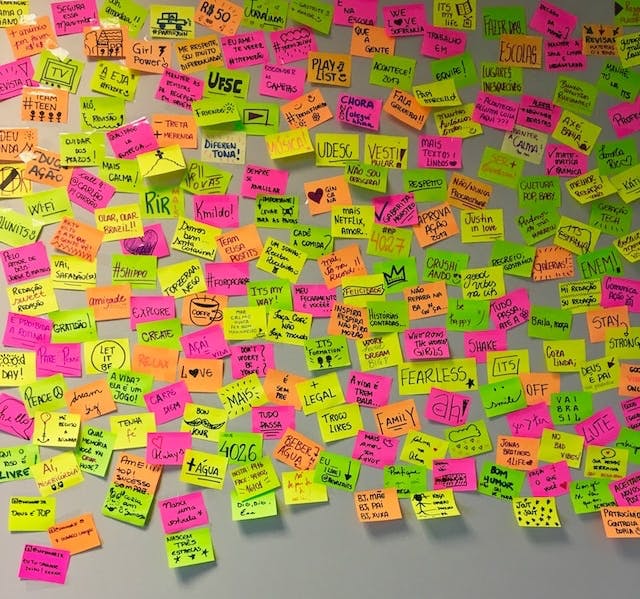
The Three Ways To Build Self Confidence
Today, I’m going to teach you how to become more self-confident when playing Chess.Good self-confidence can do wonders for your chess performance. Instead of going in circles, doubting your skills, you will calculate lines one time and then trust yourself and go with the move that seems best. Not only does this lead to better results, but it is also much more fun to play Chess that way. Obviously, you will still make mistakes, but that’s simply unavoidable!
Many Chess Players think that self-confidence can only be achieved through good results.
But there is a problem: self-confidence is needed to achieve good results.
In reality, Self-confidence can be achieved in three ways, and good results are only one of them. I’ll show you how to get more self-confident without winning a single game.
Self-confidence leads to good results and makes playing Chess more fun.
The three ways to build your self-confidence are:
- #1: Training well
- #2: Trusting your current skills
- #3: Good results
They are all connected. Point #1 leads to Point #2 and eventually leads to good results, thanks to an already higher self-confidence.
Step 1: Train Well
Nothing beats knowing one did one’s best to prepare for a certain game. There is nothing more one can do!
On the other hand, if I played a tournament after a few weeks of lazy training with little effort, I couldn’t help but feel bad about my Chess. On every crucial decision, part of my brain thought, “If you only trained harder, you would be able to calculate better now!”.
While Training well will lead to self-confidence, training badly will lead to self-doubt, even if the results are great at the moment.
High-quality training is the fundament of great self-confidence.
By the way, self-confidence doesn’t mean that you think you couldn’t be better. If that were true, only the best engine in the world would have reason to be self-confident.
It just means that you trust your abilities at this very moment. When you know you did everything you could to prepare for this moment, you can’t help but trust your intuition and skills.
You will still make mistakes, but only those that were inevitable anyway.
Action Step #1: Stick To Your Training Plan
If you haven’t already, make sure to create your personalized training plan and stick to it. It doesn’t matter if your current life circumstances allow for 20-minute or 2-hour training sessions every day.
What matters is that you make a plan and show up with the best focus possible.
Doing this increases your self-confidence without having to win a single game.
Step 2: Trust your Current Skill
Training will inevitably lead to more skills. And even though you might not be able to use those skills instantly to get new results, knowing you have more skills will help with your self-confidence.
I heavily relied on this part of self-confidence after my brain injury. I simply couldn’t train very hard. Going to tournaments, I only thought about how much more others trained in the past couple of months/years.
Then, my Sports psychologist told me to rely on my skills acquired through years of good training.
So, instead of getting self-confidence through optimal training in the present, I thought about all the hours I put in years before and the skills I learned. I did that by solving exercises that were way too easy for me (OMG, I’m so good!) or going through some of my best wins.
Another way of doing it is to have a training diary and write down one thing you learned every single day. Soon enough, you will have proof of hundreds if not thousands of motifs, ideas, and skills you learned. Going through them should give you a boost of self-confidence.
In periods where you can currently train well and look back on all the skills you learned, you get 2 for 1! Self-confidence through training and the skills you already have.
Action Step #2: Write down What You Learn
Start a list of things you learned in your training sessions. You can use a simple Word Document for it, write it in your diary, or put a new post-it into a box every single day. On days you feel self-doubt, look at everything you learned through your training. I bet you can’t help yourself but feel confident with all these skills! You can also leave post-its on your wall or all over your apartment.
You can also leave post-its on your wall or all over your apartment.
Step 3: Good Results
Only now do we get to the most commonly known source of self-confidence: good results.
Results are easy to track. But they aren’t fully in your control! Sometimes, you can play a good game for your current skills, but your opponent is simply a little better.
That’s why it is so dangerous to have good results as the only of your self-confidence sources.
In combination with self-confidence through your training and your skills, good results can have a majorly positive effect without the downsides.
This way, you get good results thanks to your skills and self-confidence. Those results then lead to more self-confidence and, hopefully, even better results.
Obviously, this will end at some point. We all face plateaus. But that’s OK.
When you lose some self-confidence from the result bracket, train even harder and focus on your skills. Those two are the real drivers of success. Good results are just a side effect.
Keep improving,
Noël
This article was originally posted on my own Blog, NextLevelChess.
Click here to read more similar articles.
Whenever you're ready, there are three ways I can help you:
- Get my Free eBook, The Art of Chess Training. It teaches you all you need to know to start training in a structured, efficient way.
- Are you below 1400 Lichess? Then my new course, Beginner Chess Mastery, is perfect for you. Learn all the fundamentals and get a free White + Black Opening Repertoire. Learn more here.
- Last but not least, you can get more Chess insights by signing up for my free Friday Grandmaster Insights Newsletter. Join 16,000+ chess enthusiasts here.
More blog posts by NoelStuder

Chess Blunder Check: Stop Hanging Pieces And Avoid Frustration
You play a great game, four hours of high focus and great moves. It feels like victory is just about…
How To Overcome Chess Anxiety
Imagine facing a saber-tooth tiger that hasn't eaten in days. Your body goes into fight-or-flight mo…
The Secret to lasting Chess Improvement
We are nearly through Q1 of 2024 already. This is where we get to witness the huge difference betwee…